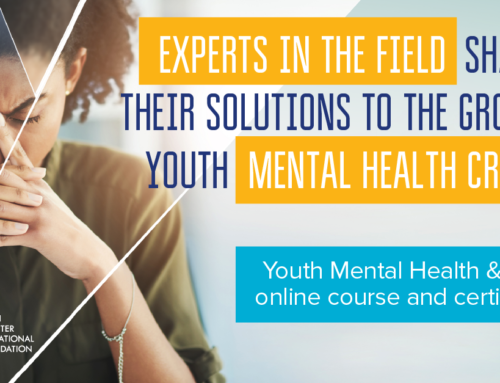
America has a long history of homeschooling as a viable education method. From George Washington to George Washington Carver, homeschoolers have left an indelible mark on the very fabric of our country.
This treasured academic choice has produced citizens who have influenced every field. Science gained from the great minds of homeschoolers like Thomas Edison and Alexander Graham Bell. Industry benefited from men such as Eli Whitney, another homeschooler. Some of the greatest military minds that North America has ever known were homeschooled (think Robert E. Lee and General George Patton.) Famous homeschoolers have shaped politics, education, entertainment, art, music, agriculture, law, sports, blue-collar jobs, white-collar jobs, and nearly every other field imaginable.
Obviously, home education produces well-educated and influential individuals. But how can this seemingly simplistic form of education possibly work as well as a conventional school experience?
Current education trends and cultural norms challenge this concept at nearly every turn. And yet, the evidence speaks for itself.
The data suggest that homeschooling’s success or failure isn’t necessarily dependent on any single set of variables. For instance, the National Home Education Research Institute (NHERI) notes, “Homeschool students score above average on achievement tests regardless of their parents’ level of formal education or their family’s household income.”
So what makes this education choice a successful one, regardless of the variables?
How Success is Defined
A good question, to begin with, is how should we define success in the context of education? Examining the data from several angles provides a few baselines for determining if homeschooling is successful and, if so, why.
Graduation
ThinkImpact examines a host of statistics related to homeschooling. One set of data notes that 67% of homeschoolers graduate high school, compared to 57.5% of public school students.
As far as success goes, homeschooling appears to score a relative win in this department.
Testing
“The home-educated typically score 15 to 30 percentile points above public-school students on standardized academic achievement tests.”
This quote comes from the NHERI’s examination of homeschooling’s academic performance. They continue to point out that homeschool students generally score above average on the SAT and ACT, heightening their college prospects. Colleges and universities consistently recruit these graduates based on their academic scores.
If testing well is a measure of success, homeschooling fits the bill.
Post-High School
Research suggests that homeschoolers do well at college, with 66% of homeschool students graduating from university. In contrast, public school students graduate from university on an average of 10% lower than their homeschooled counterparts.
Success defined in terms of higher learning is not a problem for the average homeschooled student.
Societal Assimilation
The NHERI notes that research demonstrates that homeschooled students generally perform above the average level in social, emotional, and psychological development. Some of the factors included in this research were:
- Interaction with their peers
- How they view themselves
- Leadership skills
- Family cohesion
- Community service and interaction
Homeschoolers appear to be productive and engaging members of society. As defined by this measure, homeschooling is a success.
Individualizing to the Child
Homeschooling allows children to receive the personalized and individualized education that most kids need. A public school setting simply can’t meet a student’s needs by catering to their specific personality, struggles, and talents. Homeschooling takes an approach to education that no other schooling method can.
Through individualization, homeschooling supports a child to grow and thrive in an optimal setting.
One-on-One
A homeschool classroom is small. Even homeschooling families with many children have a comparatively small class size. The average teacher-to-student ratio is 16:1. Sixteen students to one teacher. That’s a lot of kids for one teacher to invest time in on a one-on-one basis. Regardless of their efforts, even the best teachers can’t provide a completely personalized learning environment.
Homeschooling works for the same reason that tutoring works. It allows parents to give their kids the one-on-one attention that they need. This doesn’t mean the parents spend all day sitting with their student, but it does mean that when their child needs help, they are ready and available to spend the necessary time teaching their kid individually without the competing demands of a full classroom.
The one-on-one attention that homeschooling students receive on a daily basis is a huge advantage, propelling them toward academic success.
Personalized Learning
One popular perk of homeschooling is that kids can learn at their own pace. Some kids need extra support and the option of learning at a slower pace. Others require more of a challenge and enjoy the chance to power through their academic pursuits at a faster rate. Even one child’s learning speed can vary; one subject may really be a struggle for a while, yet after they grasp a difficult concept, they may soar through the rest of the level. With homeschooling, no child is left behind or held back based on the average pace of others in the class or by predetermined factors—like teacher-to-student ratio, the learning speed of other kids, learning difficulties, etc.
Homeschooling also allows interest-based learning. Students who are educated at home aren’t held to the strict grade standards found in a conventional public school setting. Homeschoolers often pursue what interests them, allowing education to be an exciting journey rather than a daily drag. Homeschoolers still learn what they need to know despite the unconventional learning style.
Personalized learning is key to success for most students, and homeschooling capitalizes on this aspect.
Family-Centered
When you homeschool your kid, you have the option of molding the education experience to fit your family. Conventional schools have specific days and hours to gather together in the classroom. Homeschooling students have far more flexible options. Many homeschoolers even opt to skip a school-free summer and take small breaks throughout the year instead. Homeschooling is entirely flexible, allowing students to keep up with their studies while taking time off as necessary.
On the other hand, if the same student attended public school, they probably would be forced to continue without a break, regardless of their stress levels, mental health, or focus abilities. Many circumstances can occur in a student’s life where the child could benefit from a break for a week or two. For instance, if the family moves, the kids have to immediately jump right into their new school environment. What if a family member dies? While a homeschooler can take the time necessary to grieve and process, a public school student will probably have a day or two before they are expected back in the classroom.
While public school students adapt and overcome, this aspect of homeschooling offers students an option to take a break for mental health and gives an excellent chance for continued success.
Public school students benefit from seasonal breaks, which offer them a chance to heal and destress. However, homeschoolers have this option, too, if that’s the schedule the family has decided on keeping.
Similar Characteristics
In some ways, homeschooling isn’t so different from conventional schooling options. Some aspects enhance student success regardless of how the student is educated.
Parental Involvement
“… whether you homeschool or your kids attend school, their education remains your responsibility as a parent. Whether you have a fantastic school system loaded with amazing teachers or a subpar school system with struggling teachers, the responsibility remains with the parent to ensure your children receive the education they deserve.”
This quote from Dena Standley highlights how significant parental involvement is, regardless of school choice. When parents are involved in education, students are more likely to succeed.
The bottom line is that, at least in healthy circumstances, no one loves a child as a parent does, and no one knows that child as well as the parent does. They understand their offspring’s best learning environments, learning styles, interests, and failings. This makes parents uniquely qualified to teach their children.
Nothing propels a child further toward success than parents taking their combined knowledge and pouring themselves into personalizing the educational experience.
Since parental involvement plays such a big role in student success, these parents see their children thrive regardless of education choice. Homeschooling works in part because the parents are so involved in their kids’ education process.
Social Interaction
Contrary to popular belief, homeschoolers have plenty of social interaction. In this way, homeschooling and public schooling are very similar. However, the kind of socialization can be different. While public school students spend most of their learning days with kids their own age, homeschool students typically interact with diverse social groups.
Socialization as a homeschooler is often in a context that prepares them for real-world experiences. Research backs this up, with thirteen studies concluding that homeschooled students tend to outperform public school students in social development.
Homeschooling creates many opportunities for students to interact with society in realistic ways, cultivating social development and preparing homeschooled kids for success beyond their childhood.
Budget
It’s no secret that the budget limits America’s public schools. However, while public schools receive public funds, homeschooling families bear the full brunt of investing in their students’ education. Public school teachers and homeschooling parents both have to get creative to ensure the optimal education experience for their children.
The good news for homeschooling parents is that educating your child at home doesn’t have to break the bank! Depending on the homeschooling style and curriculum, homeschooling can cost anywhere from pennies to thousands of dollars per year. The median approach is to spend between $300.00 and $600.00 per child. The average cost of back-to-school supplies for a public school student is about $670.00. This means that homeschool parents can offer their children a year’s worth of individualized education for less than they would spend on back-to-school supplies if their kids attended public school.
Money may still be an issue since many homeschooling families are single-income households on a tight budget. However, many still choose to make the sacrifice knowing that those funds are invested in a quality, personalized education for their students, embracing each child’s specific needs and talents.
A Rich History and a Promising Future
Homeschooling has a long-standing tradition of success. Its strong history has kept this education option alive and viable for centuries. It’s also a choice that continues to grow in popularity here in the United States.
Parents are qualified to teach their children, and modern technology has only enhanced their ability to do so. Homeschoolers succeed at a rate above the baseline because of their parents’ unwavering dedication and the intensely personal nature of this form of education.
Homeschooling works because it’s focused on each child individually in every way. That is the secret of successful home education.





[…] standardized academic exams, homeschooled children typically outperform public-school students by 15% to 30% in terms of marks. The best feature of homeschooling is that it is tailored to a child’s unique learning style […]
[…] the very nature of homeschooling seems to lend itself to success, and even the most “unqualified” parents are often relieved to watch their homeschool graduates […]
[…] the very nature of homeschooling seems to lend itself to success, and even the most “unqualified” parents are often relieved to watch their homeschool graduates […]